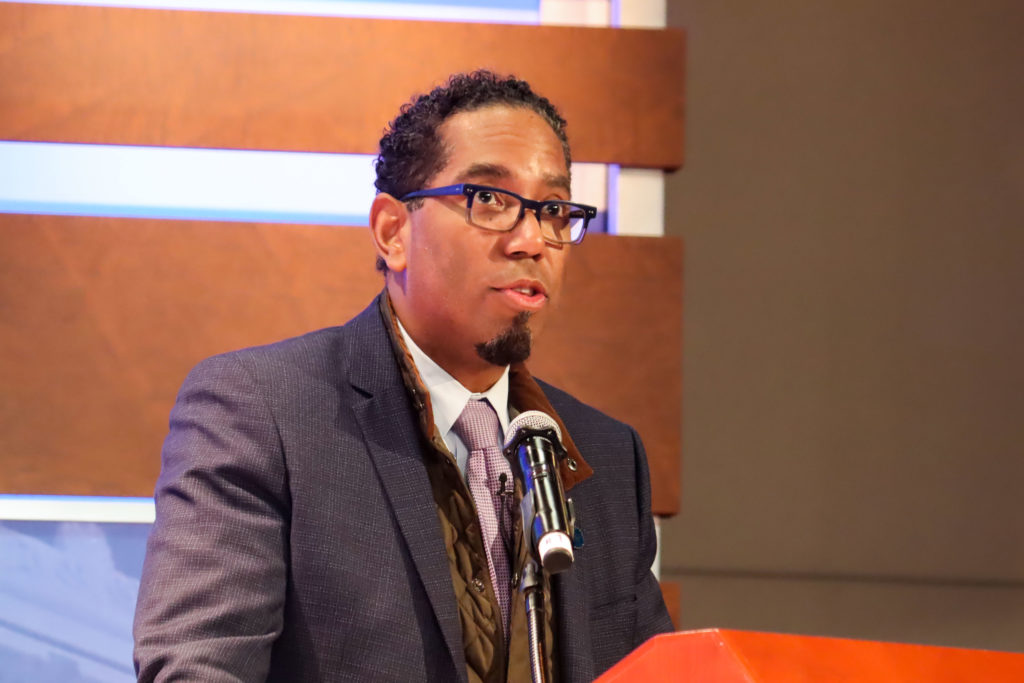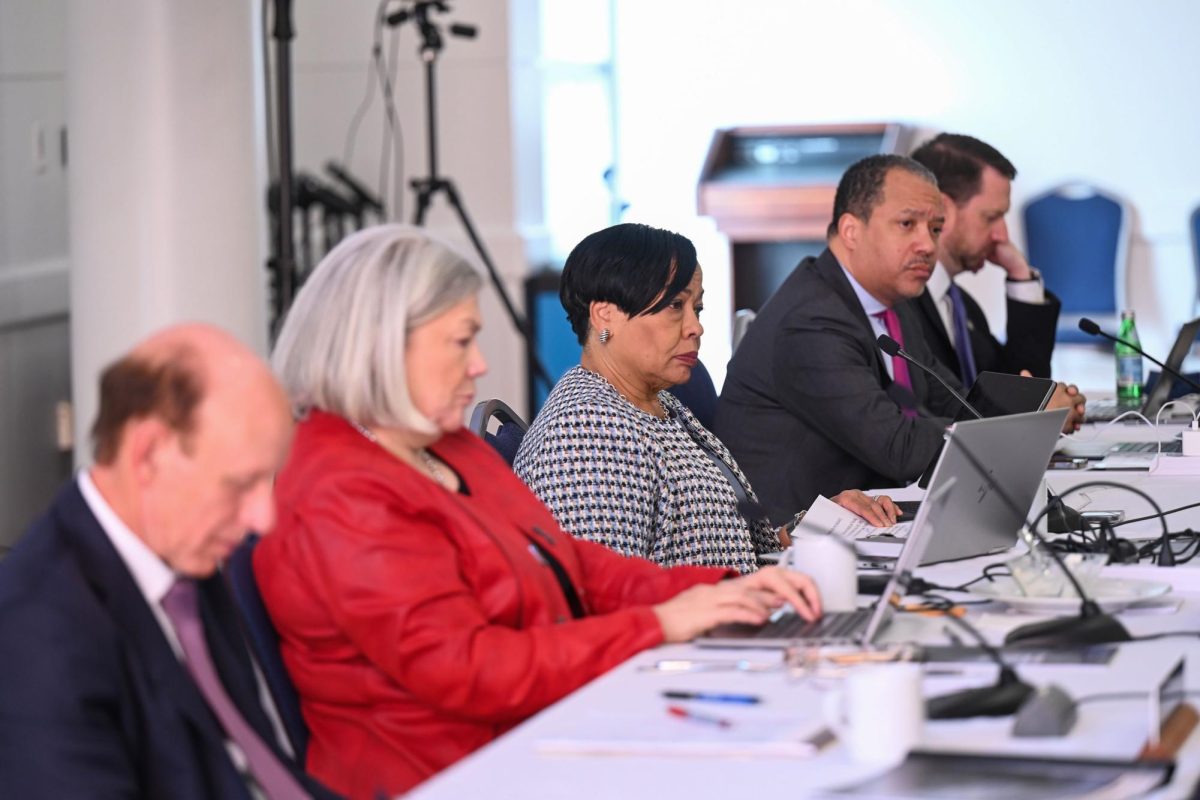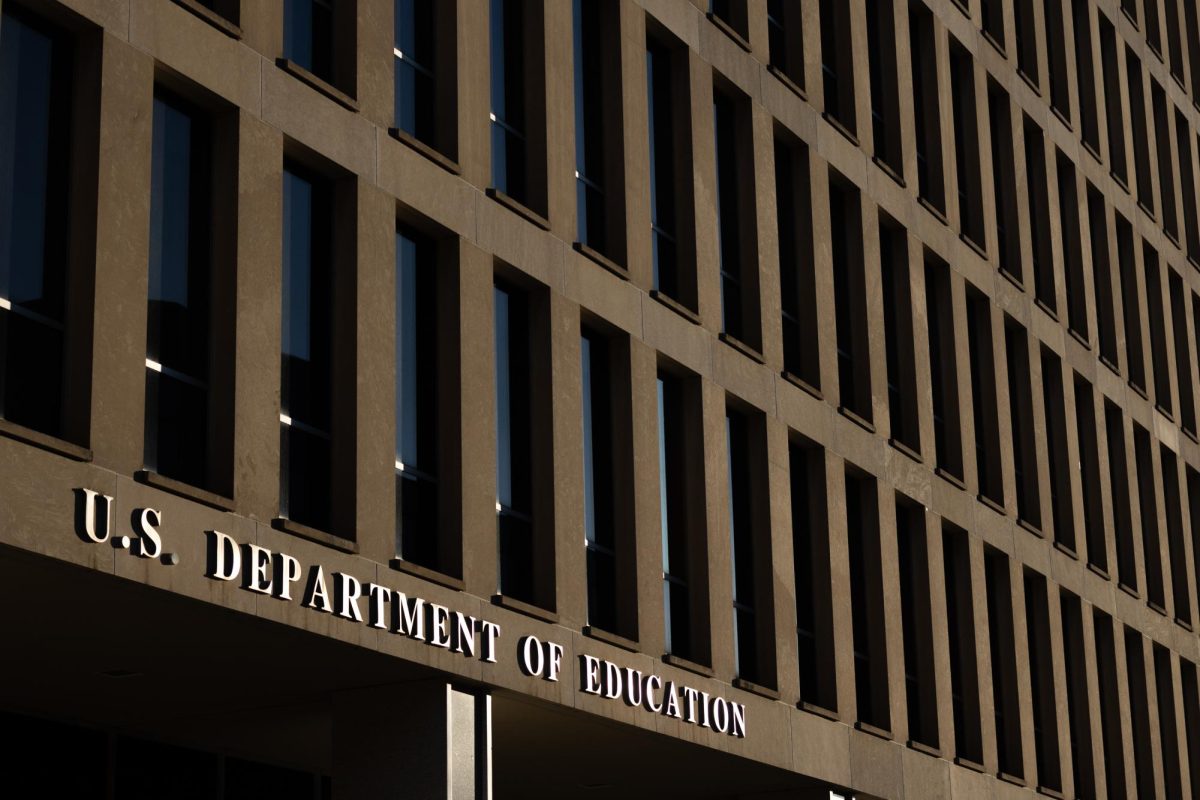Officials plan to release the results of a University-wide survey of GW’s diversity, equity and inclusion climate this academic year, Provost Chris Bracey said at the annual Faculty Assembly Monday.
Bracey told the faculty at the meeting, which took place in a hybrid format at the Jack Morton Auditorium and via Webex, that reports on the survey results will be available for “leadership review” in November. The Diversity Program Review Team – a 26-member group of administrators, faculty and students – launched the climate survey in April after forming in February to develop recommendations to improve diversity at the University.
“This is a massive undertaking, as you can imagine, so I want to thank everyone for participating in the diversity program review process, as well as everybody who was able to complete the climate survey itself,” Bracey said at the assembly.
Bracey said subgroups of the Diversity Program Review Team will discuss the findings of the survey with “advisory councils” and other campus stakeholders early next semester. He said officials will present the survey results to the wider GW community, and subgroups will work together to draft a final report on the survey’s findings shortly after.
“We want to make sure that we’re performing a thorough analysis before we release this information more broadly,” he said.
Bracey said officials in the provost’s office are working to make a “five year budget planning process” and hope to shorten the process of doing so by communicating with academic leaders earlier than usual. He said officials held meetings with deans, associate deans and financial directors from the University’s schools to discuss the budgeting process last week.
“We will continue to have more conversations with the academic and nonacademic divisions as the budgeting process unfolds,” he said.
Bracey said the Board of Trustees’ committee on audit and compliance has expressed “concerns” about the low completion rates of Title IX modules among faculty members. He said officials “strongly encourage” faculty members to complete the modules.
“The high faculty completion rate will be a powerful signal to members of our community that the faculty takes seriously the University’s commitment to the elimination of harassment and the prevention of harassment and that the faculty understand their critical role in protecting our students as designated reporters,” he said.
Bracey added that officials have completed “more than a dozen” academic reviews of programs and departments as part of a process that takes place every seven years, since last September.
“In general, what we’re finding is that our departments are performing well, although some need a few nudges here and a tweak there, all have substantial enrollment that support our overall academic enterprise,” he said.
Sylvia Marotta-Walters, a professor of counseling and a faculty senator, presented a report on the Faculty Senate’s activities and the ongoing search for the next University president on behalf of Jim Tielsch, the senate’s executive committee chair and the vice chair of the Presidential Search Committee, who was absent from the assembly.
Marotta-Walters said the senate’s executive committee met with the Board of Trustees earlier this month as the first of a series of ongoing meetings to promote shared governance between faculty members and trustees. The senate overwhelmingly approved a set of shared governance principles in April to improve collaboration between faculty, administrators and trustees.
Interim University President Mark Wrighton welcomed new faculty members to the University, including more than 90 new faculty in the School of Medicine and Health Sciences. He also celebrated the hiring of new officials over the past 10 months of his tenure.
Officials appointed five officials to new leadership positions within the Office of the Provost in July, and Wrighton announced four more administrative appointments about a week later.
“During this year, in my first 10 months, I’ve been very pleased with the recruitment of a significant number of leaders who are now in place and contributing to the administration of this University,” he said.
Ianne Salvosa contributed reporting.











